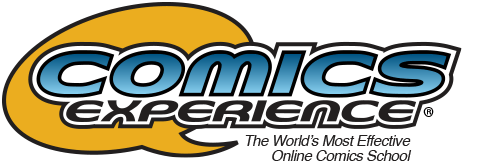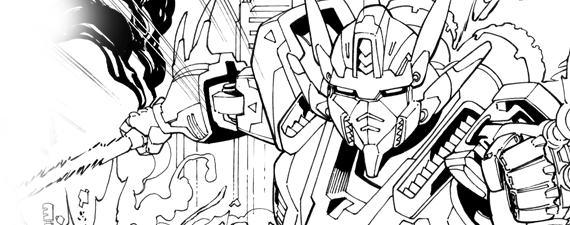In a slight departure from our usual blog format, this entry will address a career-building question that landed in my inbox:
I recently read the interview you did with Wired back in 2012 about comic book editing and I was wondering if you had any advice for an aspiring editor. Just to give you a little background, my degree is in journalism and for the past 6+ years, I’ve worked as a production editor for a niche publisher (prior to that, I worked as a copy editor for a daily newspaper). What advice can you give to an aspiring comic book editor? What should I be doing now to distinguish myself?
Thank you,
Timothy Williams
To Timothy and anyone else aspiring for a career in comic book editing, there are a number of paths available. Of course, your opportunities will vary depending on things like your background, your aspirations, where you live, and what kinds of professional connections you already have in place. But on a general note, here are a few of my quick-n-dirty suggestions.
- Check the credits of the comics that appeal to you personally, and follow the editors on Twitter or other social media to start getting a broad view of how they approach their work and projects. Sometimes even a passing comment can help lead to broader connections and insights.
- Create your own opportunities. Having some published comics work, either in print or online, will show potential employers, clients and collaborators what you’re capable of. Launching your own projects via crowdfunding or self-publishing demonstrates initiative and ability to follow through.
- For those still in school or the early stages of a career, internships are a valuable way to see how the comics editorial process works. Editing comics is, of course, different from editing other kinds of publications, so any opportunity to gain exposure to the process is beneficial, even if you’re just starting off by observing other people at work.
 If an internship isn’t an option for you, or you’re already editing in a different medium, there are other ways to educate yourself about the specific editing concerns that are unique to the comic format. Look for resources – books, classes, websites – that address topics like visual storytelling, composition, color theory and lettering placement. A few starting recommendations include Understanding Comics by Scott McCloud, Comics and Sequential Art by Will Eisner, and The Insider’s Guide to Creating Comics and Graphic Novels by Comics Experience founder Andy Schmidt.
If an internship isn’t an option for you, or you’re already editing in a different medium, there are other ways to educate yourself about the specific editing concerns that are unique to the comic format. Look for resources – books, classes, websites – that address topics like visual storytelling, composition, color theory and lettering placement. A few starting recommendations include Understanding Comics by Scott McCloud, Comics and Sequential Art by Will Eisner, and The Insider’s Guide to Creating Comics and Graphic Novels by Comics Experience founder Andy Schmidt.
- Interact with the folks whose work you admire, as long as you keep it casual and appropriate. Saying hi at conventions, using social media to compliment creators on specific projects – those are constructive, professional ways to interact and put yourself on people’s radars, without being intrusive. Comics Experience did a free podcast about getting to know people at conventions without coming across as creepy.
- In addition to our free podcasts, Comics Experience offers lots of opportunities for networking, education and career building. Visit the course page for our upcoming Career Building Seminar with Christos Gage, check back for announcements about the next session of our Editing and Project Management course, and explore our site for other offerings.
I hope this helps to provide a useful starting point for aspiring editors and others. We’ll also address this question in an upcoming podcast. Stay tuned for announcements!
——————————————-
If you want to make comics, write, draw, letter, and color comics, or improve as a comics creator, you’ll find like-minded friends and colleagues in our online workshops and courses. We hope to see you there!
Posted by Nicole Boose
nicole@ComicsExperience.com
Twitter


